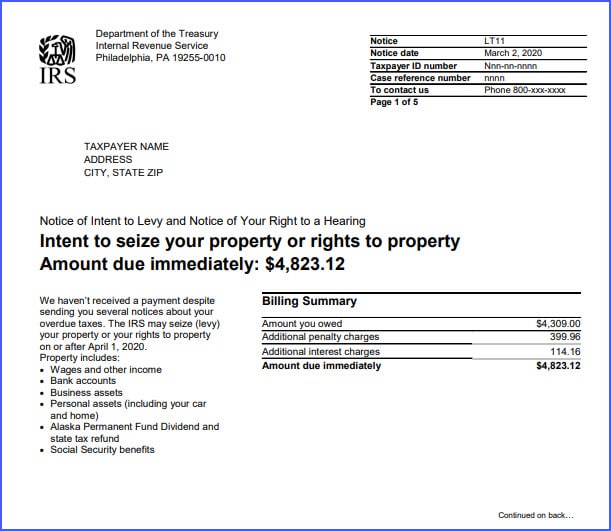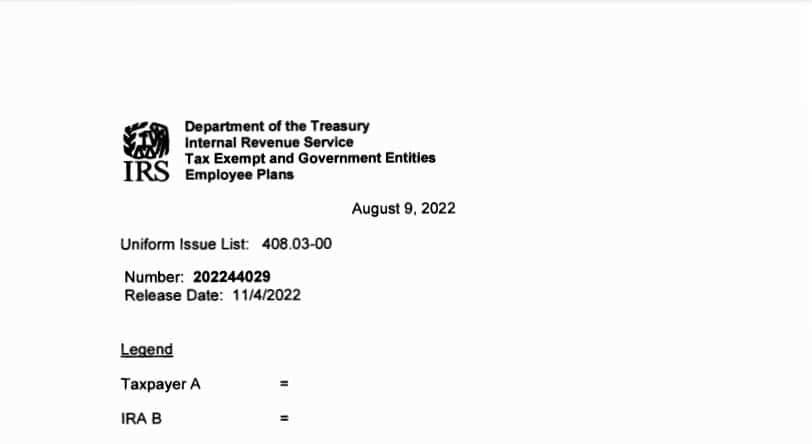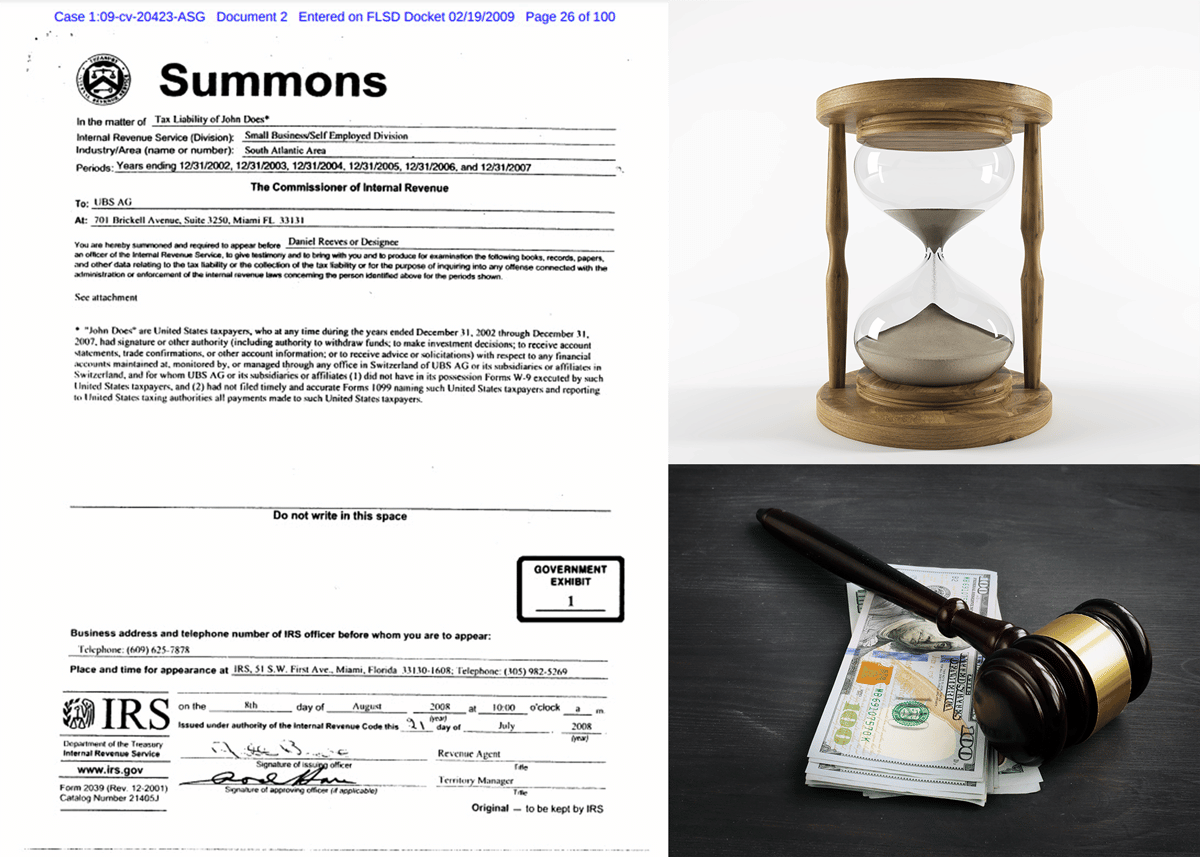Respecting Corporate Formation: Rochlani v Commissioner
Overview
How can a corporation have a loss for tax purposes if it does not have any bank accounts, credits cards, or other lines of credit and it does not keep any books or records? The taxpayers in Rochlani v Commissioner found out the hard way.[1]
Business Formation and Operations
In 2006, Mr. Rochlani (the “Taxpayer”) started Ultimate Presale, which was a business that bought and resold sporting, concert, and other tickets. Without the Taxpayer’s knowledge, his son–a minor at the time–used an online legal service to incorporate Ultimate Presales under Michigan law.
As a result of the incorporation, the state sent the Taxpayer documentation on his new corporation. Although the taxpayer had not initiated the process, he did not seek to stop or unwind the incorporation. Thereafter, the Taxpayer made the necessary state filings (i.e., annual reports) to keep the corporation in good standing.
Despite being a full-time employee at Ford Motor Co., the Taxpayer took his wife and sons “to various locations within the metropolitan Detroit area in addition to traveling around the country to buy and resell sporting, concert, and other tickets.”
The taxpayer used personal credit cards to make purchases of tickets, and the taxpayer used personal checking accounts. Ultimate Presales did not have a corporate credit card or checking account. The taxpayer did not keep a set of books.
Annual activity for tax reporting purposes was reconstructed using credit card statements. The taxpayer reported the activity on his personal tax return as a Schedule C, which the taxpayer prepared himself.[2]
For 2008 and 2009, the business had tax losses of approximately $42 thousand and $44 thousand dollars, respectively.
The IRS Challenge
The IRS audited the taxpayer’s tax returns for 2008 and 2009 and subsequently issued a notice of deficiency. The IRS determined that the Taxpayer’s activity was attributable to the corporation and therefore should not be reported on Schedule C.[3]
The taxpayer’s wife petitioned to Tax Court and represented herself.[4]
Whose Activity Is It?
The Taxpayer’s corporation did not have any checking accounts or credit cards in the corporate name. The only official action—at least per the Tax Court’s opinion—was the filing of an annual report with the State of Michigan. On the Michigan annual report, the Taxpayer reported all of the activity of Ultimate Presales. On his federal tax return, the taxpayer reported the income on Schedule C.
Nevertheless, the IRS determined that the business activity of Ultimate Presales—i.e., the activity on the Taxpayer’s personal bank accounts and credit cards—was still attributable to the corporation rather than as a Schedule C.
As a result, the losses incurred by Ultimate Presales were trapped in the corporation and thus were not available to offset the Taxpayer’s other income (e.g., wages from employment).[5]
Respecting the Corporate Form: Moline Properties
In reaching its holding, the Tax Court relied on an old Supreme Court case called Moline Properties v. Commissioner. [6]
At the request of creditors, the taxpayer in Moline Properties contributed real property to a corporation in exchange for stock. In addition, the corporation assumed the mortgage on the contributed property. The stock held by the taxpayer was then used as collateral for a loan.
After formation, the corporation defended against a condemnation suit and also leased some of the land. A couple of years after formation, the corporation sold the real property as three separate parcels.
Much like the corporation in Rochlani, the corporation in Moline Properties kept no books and records. Again like in Rochlani, the sole shareholder in Moline Properties used his personal bank accounts to hold deposits from sales.
The shareholder in Moline Properties attempted to argue that the gains from the sale of the real property should be reported on is personal return. The IRS disagreed and argued that the taxpayer was stuck with his chosen form (i.e., contribution to and ultimate sale by the corporation of the real property).
The Supreme Court stated that
“The doctrine of corporate entity fills a useful purpose in business life. Whether the purpose be to gain an advantage under the law of the state of incorporation or to avoid or to comply with the demands of creditors or to serve the creator’s personal or undisclosed convenience, so long as that purpose is the equivalent of business activity or is followed by the carrying on of business by the corporation, the corporation remains a separate taxable entity.”[7]
From this statement, future courts have determined that the corporate form will be respected if (i) the corporation is formed for a purpose that “is the equivalent of a business activity”; or (ii) the corporation actually carries on a business.
In Rochlani, the Tax Court stated that the corporation “was organized for the bona fide business purpose of buying and reselling sporting, concert, and other event tickets.” Thus, the Tax Court did not have any problem finding that the corporation in Rochlani should be upheld.
However, the rule from Moline Properties does not provide any type of mechanism for determining what activity should be attributed to a corporation. It is not clear based upon the Tax Court opinion how the IRS adjusted the Taxpayer’s income. Also, the Tax Court did not discuss what information was provided on the Michigan annual report.[8]
Taxpayer’s Arguments
Based upon the opinion, the Taxpayer appeared to have two principle arguments.
First, the Taxpayer argued that incorporation by the son should not be respected because he was a minor and therefore lacked the capacity to form a corporation. The Tax Court agreed that the son lacked capacity, but the Tax Court held that the Taxpayer’s subsequent actions ratified (i.e., filing the annual reports with the State of Michigan) the son’s actions.[9]
Second, the Taxpayer argued that since the corporation did not have any books and records the corporate form should not be respected as a separate taxable entity. The Tax Court disagreed and cited Moline Properties for the principle that books and records are not necessary to uphold the existence of a corporation for federal income tax purposes.[10]
Despite that none of the activity ran through corporate accounts and there were not corporate records, the reporting to the state of Michigan was enough for the IRS and the Tax Court to conclude that the business activity should be imputed to the corporation.
Discussion
Note that the Tax Court did not even mention whether or not the corporate form would have been respected for state law purposes. Rather the Tax Court look solely to the formation and whether there was a valid business purpose.
In most if not all states, the lack of corporate formalities in both cases would be considered as factors in favor of piercing the corporate veil or disregarding the corporate form.
So when would a corporation disregarded for federal income tax purposes? The Tax Court stated “[c]ourts have held that ‘the corporate form may be disregarded where it is a sham or unreal.’ When a taxpayer tries to avoid the tax disadvantages of the corporate form, however, the “claim that his controlled corporation should be disregarded will be closely scrutinized.”[11]
Without any separate books, records, or accounts, the analysis in Rochlani seems a bit attenuated since there is no clear line as to what should be imputed to the corporation. In Moline, the real property and mortgage were assumed by the corporation. Therefore, it would be somewhat easy to determine what activity should be imputed to the corporation.
However, in a service business where the owner and his family use family accounts and credit cards, how can one tell what income and expenses were carried on by the corporation? What does it mean to be conducted on behalf of the corporation? Was it necessary for the taxpayer to indicate to customers that sales were being made on behalf of Ultimate Presales?
Takeaway
Be extremely careful if you form a legal entity under state law and make sure that you understand the basic tax consequences.
This was a disastrous result for the Taxpayer. Failing to appreciate the tax consequences of incorporating cost the taxpayer dearly. Simply forming an LLC instead of a corporation may have changed the result. An LLC would have been disregarded for federal income tax purposes and the Taxpayer’s business activity would have been properly reportable on Schedule C. A quick discussion with a tax professional could have saved the Taxpayer. There would have been minimal effort or cost to the Taxpayer to avoid this result.
Notes
[1] T.C. Memo. 2015-174. Link to Google Scholar.
[2] However, the business activity was reported to the state of Michigan for corporate reporting purposes but the business activity was reported for federal income tax purposes as directly by the Taxpayer (i.e.., on Schedule C).
[3] The Notice of Deficiency led to an increase in income of $6,772 and $5,828 for 2008 and 2009, respectively. In addition, the taxpayers were subject to accuracy related penalties of $1,354 and $1,166 for 2008 and 2009, respectively.
[4] Note Mr. Rochlani passed away in April 2014, which is why Mrs. Rochlani was the petitioner.
[5] Also, had the Taxpayer considered electing to be treated as an S corporation then, depending on the shareholder’s basis, the losses may have flowed through on Schedule K-1 rather than being trapped at the corporate level.
[6] 319 U.S. 436 (1943).
[7] Moline Properties at 318-319 (citing New Colonial Co. v. Helvering, 292 U. S. 435, 292 U. S. 442; Deputy v. Du Pont, 308 U. S. 488, 308 U. S. 494)(emphasis added).
[8] Even if there was no information regarding taxable income on the Michigan annual report, my guess is that the agent could attempt to reconstruct financial results of the business activity from credit card and bank activity.
[9] Rochlani at 8-9.
[10] Nevertheless, if you want your corporate form respected–particularly for as a legal separation between a business and the owners’ personal assets–I would not pin my hopes on the holdings in Rochlani or Moline. Failing to keep adequate books and corporate records is highly unlikely to benefit the owner.
[11] Rochlani at 6 (citing Moline Properties, Inc. v. Commissioner, 319 U.S. at 439; Strong v. Commissioner, 66 T.C. 12, 24 (1976)). Curious readers may also want to take a look a Robucci v. Commissioner, T.C. Memo. 2011-19. In Robucci, the Tax Court found that a corporation was not formed “for a purpose that ‘is the equivalent of a business activity’ under Moline.” As a result, the tax planning undertaken by the taxpayer in Robucci was invalidated.

Justin Hughes, JD, CPA, LL.M.
Justin Hughes focuses on resolving federal and state tax disputes for individuals and businesses. He has represented clients before the IRS and state taxing authorities at all stages, including audits, administrative appeals, litigation, and collections. As both an attorney and a CPA, he combines legal insight with accounting experience to help resolve tax problems for clients.






